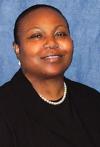Corrections officer promoted
By Nick Hiltunen
Published in News on April 11, 2010 1:50 AM

Annie Harvey
A Wayne County woman has been named female command manager for the North Carolina Division of Prisons, a move that will solidify the department's operational structure.
Annie Harvey previously served as warden at the state Correctional Institution for Women.
State correction officials have consolidated the administration of the women's division in recognition of the different needs of men and women.
According to the N.C. Department of Correction, the entirety of the Department of Prisons, including male populations, operated under a similar structure in the late '80s and early 1990s. Then, in 1998, the division was reorganized to be managed by geographic region.
That setup works for the male population, said Keith Acree, the public affairs director for the N.C. Department of Correction.
"It made sense to organize the men's prisons geographically," Acree said. "We've come to see that geographic organization makes sense for the men's facilities."
But since women's prison facilities were also lumped into the geographic restructuring, the women's prison system has suffered from a lack of direct attention, Ms. Harvey said.
"The male population is so huge, that it is very hard to focus on a small population, a minority population (such as women)," she said.
In the old setup, the biggest contingent of prisoners would receive the most attention, she said.
"Now, by putting all the female facilities together, their issues and concerns can be dealt with quicker, and you can have more continuity with those female facilities, and the issues and concerns would not get lost within the large population," she said.
Ms. Harvey said that the differences between men and women don't disappear just because they are behind bars.
"I think one of the first things is that society at large considers women and men to be different, and that doesn't change when you come to prison," she said. "To get the best outcome in managing the population, and to be the most effective, and cost effective also, women have special hygiene needs, and some different medical issues that come up."
But the differences between male and female populations in prisons, which have always been completely separated, go beyond that, she said.
"(Women) ... learn differently, they interact different(ly), they are very relational, and they are often the one, who (was) the primary caregiver for their children before they come to prison."
The prison system makes efforts to preserve the bonds between mother and child, Ms. Harvey said.
"It's very important to maintain the continuity of the relationship between the child and also to ensure that the child suffers the least amount possible because the mother has been removed from the home," she said.
One program aimed at improving the connection between mothers and children is called "Mother Read."
In addition to providing literacy education to mothers who cannot read, the program also records the women as they narrate childrens' books. The recordings are sent to the homes of the female inmates so their children can continue to hear their mother's voice.
"You know, there's a difference between hearing your father's voice and your mother's voice, and they (with the Mother Read) recordings, they can hear it any time that they want to," Ms. Harvey said.
Another program, "Mothers And Their Children" uses volunteers trained to monitor and assist in personal visits between mother and child, the female command director said.
"It is designed (to allow) appropriate communication between the mother and the child, to enhance their parenting skills and ... to maintain their parenting skills," Ms. Harvey said.
Those two programs are among the state-recommended "best practices" for handling women prisoners, and are better handled under one authority, she said.
